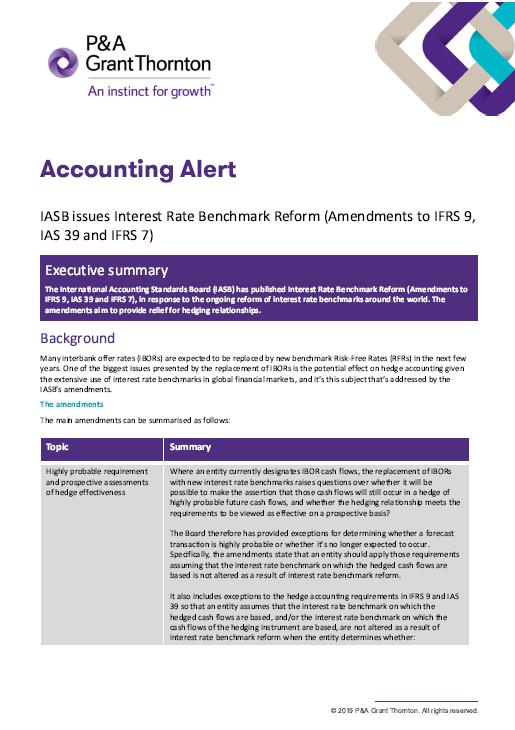Accounting Alerts
- 2024
- 2023
- 2022
- 2021
-
2020
2020
- Extension of Deadline for Submission of Forms/Notices
- Online and Manual Submission of Forms/Notices Pursuant to SEC MC 28-2020
- COVID-19 Accounting Implications for CFOs - Debt Modifications
- Discussion Paper 'Business Combination under Common Control'
- SEC Memorandum Circular No. 32 series of 2020
- SEC Memorandum Circular No. 31 series of 2020
- SEC Memorandum Circular No. 28 series of 2020
- Insights into PFRS 16 - Lease Incentives
- IASB issues Interest Rate Benchmark Reform Phase 2
- IFRIC 23 - Uncertainty Over Income Tax Treatments
- COVID-19 Going Concern Considerations
- Extension of Deadlines and Interim Procedures for the Submission of Printed/Hard Copies of Annual Reports
- IASB Defers the Effective Date of IAS 1 Amendments
- Guidelines on the Electronic Submission of the Annual Report and Audited Financial Statements to BSP
- Filing of Annual Reports During the Temporary Closure of the SEC Main Office until July 26, 2020
- Work Suspension at the SEC Main Office and Extension of Deadlines for Certain Corporations
- Adjustment of Deadlines for Submission of Annual Reports to the SEC and Other Announcements
- Amendments to IFRS 17 and IFRS 4
- Filing of Reports and Other Documents in SEC Main Office during Temporary Closure
- Options for the Submission of Reports, Applications and Other Documents to the SEC During Community Quarantine
-
2019
2019
- SEC Extends Deadline for Annual and Quarterly Reports for...
- Deferral of IFRIC Agenda Decision on Over Time Transfer of Constructed Goods (PAS 23) for Real Estate Industry
- Implementation of IFRS 17, Insurance Contracts
- Amendments to Regulations on Financial Audit of Banks and Non-Bank Financial Institutions
- Navigating the Changes to IFRS 2020
- SEC Memorandum Circular No. 2 - 2020 Filing of Annual Financial Statements and General Information Sheet
- IASB issues Classification of Liabilities as Current or Non-current (Amendments to IAS 1)
- GTI IFRS News Q4 2019
- Insights into PFRS 3: Definition of a Business
- IASB issues Interest Rate Benchmark Reform
- Insights into PFRS 16: Presentation and Disclosure
- Insights into PFRS 16: Lease Payments
- Insurance Commission's Guidelines on Lease Accounting for Insurance and Reinsurance Companies
- GTI IFRS News Q1 2019
- Application Deferral of PIC Q&A 2018-H and 2018-14
- Sustainability Reporting Guidelines for Publicly-Listed Companies
- Insights into PFRS 16: Sale and Leaseback Accounting
- Insights into PFRS 16: Transition Choices
- Use of the New General Information Sheet (GIS) Form
- 2019 Filing of Annual FS and GIS
- Navigating the Changes to IFRS 18
- Insights into PFRS 3: Definition of a Business
- GTI IFRS News Q2 2019
- Rules on Material Related Party Transactions for Publicly-listed Companies
- BOA Repealed Resolutions on FS Compilation Services
- GTI IFRS News Q3 2019
- 2019
- 2018 2018
- 2017
- 2016
- 2015
- 2014
- 2008
- 2007
- 2006
- 2005

